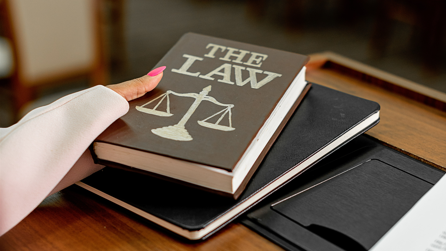Introduction
Data Protection Bill approved by Cabinet: Content, concerns
As the negotiation phase of Europe’s AI Act begins, both questions and praise pour in. Norway Threatens $100,000 Daily Fine on Meta Over Data
These are but three of the many headlines that featured in less than a fortnight, with technology and its impact on the legal and policy landscape being their focus. As our consumption of data rises exponentially, so do the risks on account of its leakage and unauthorised processing or profiling. This in turn has resulted in nations experimenting with different models of data protection backed by strong enforcement architecture, including hefty fines and penalties. Similarly, with our enhanced ability to make meaning of such data, our capabilities to automate tasks, often by mimicking the human brain, have expanded. However, the machine learning algorithms and neural networks powering such artificial intelligence have also posed new threats, including the explosion of misinformation, vulnerabilities on account of labour displacement, and ambiguities surrounding the liability of developers, software companies, and deployers for AI errors and biases. The European Union, as expected, has taken the lead in adapting its legal and policy landscape to address some of these “new normal” realities.
But all is not bleak amidst this scenario of vanishing jobs, diluted privacy, and dwindling reliability. While many have lamented that automation will drive away jobs from the legal sector, these laments are, as is most often the case, manifestations of a one-sided view of a more complicated prism. Yes, some types of jobs are set to vanish, but the good news is that new jobs are in the offing for those with the right set of skills and training. To capitalise on the same, though, both educators and pedagogic models must commit to a large-scale overhaul.
Five-Year Integrated Law Programmes at VMLS

Here, I focus specifically on what this overhaul would look like in the world of legal education. To begin with, we have the integrated programmes B.A. LL.B. (Hons.), B.B.A. LL.B. (Hons.), and B.Com. LL.B. (Hons.), of which the B.A. LL.B. (Hons.) degree has by a mile emerged as the preferred frontrunner among law aspirants. The elegance of this programme, pioneered by my alma mater, NLSIU Bangalore, is the degree of flexibility it offers to educators to instill the spirit of critical thinking and intellectual breadth in learners through a cocktail of liberal arts courses. Building on this flexibility, at Vinayaka Mission’s Law School, we have designed our curriculum for all these courses—sociology, political science, economics, etc.—in such a way that the impact of technology on these disciplines is discussed and debated in detail. Concepts like digital democracy, behavioural nudges, and the dopamine rush from technology addiction are not alien in our classroom on account of the infusion of this thinking into our curriculum design.
The B.B.A. LL.B. (Hons.) and B.Com. LL.B. (Hons.) programmes can also be reimagined with a focus on digital transition, entrepreneurship in the digital age, programmes on venture financing and angel investing that provide a flavour of the legal and regulatory regime surrounding access to capital, and leadership skills for a decentralised workforce. These are hugely essential considering how the global pandemic has pushed us out of our comfort zone and made us reimagine the worlds of commerce and business, especially in the context of the technological push that helped us cope with the challenges of lockdown and isolation.
Going further, all our core courses have been reimagined with the technological transition in mind. To provide an example, how does free speech operate in a social media setting? Or defamation laws? Or theft, for that matter? These are all questions that learners must critically engage with in order to understand the impact of technology on existing laws and regulations. Often, the mistake we commit is to assume that technology law is some strange animal, removed from all that has existed and continues to exist regardless of when these innovations started capturing our imagination. This is simply untrue. Be it cab hailing services, food delivery operators, or the installation of telecom towers, there is already a plethora of legislation and regulations that deal with these subject matters. It is part of a well-trained lawyer’s toolkit to unbundle the complexities arising from interpreting existing laws to suit new situations, and the technology transition is no different in this regard.
Hence, the emphasis on critical thinking skills becomes amplified, as only a skilled lawyer with the ability to ask the right questions can easily commit to such successful unbundling and demystification of our complex laws and rules. This starts with an ability to conduct incisive legal research, making use of all the tools that are now at our disposal—law reporters, databases, ChatGPT—and generating new leads that help us find the right legal position or distil the same from what exists. But proceeding from here, it is also imperative that the lawyer come to the table with the right communicative skills, which help other stakeholders understand complex concepts in a simple manner.
These are skills that very many law schools have ignored or simply relegated to moot court competitions and ADR contests. While these are no doubt important, critical thinking and communication skills need to be honed in a focused manner. Communication is as much an art as a skill, with the nuances and rules of the game shifting depending on the context. What may pass muster as effective communication in a courtroom setting may not necessarily work in a boardroom setting, when advocating policy positions before a senior-level bureaucrat, or, for that matter, when arguing a dispute before a specialised regulatory tribunal. Thus, the only way to train learners is to provide them with a lot of self-awareness, some degree of basic rules and etiquette, and tremendous self-confidence so that they can shine in any setting. In short, legal education must set its sights beyond communication in a narrow courtroom setting to other forms of communication, including the power of non-verbal communication. Indeed, as Prof. Mehrabian once demonstrated through his research, 55% of communication success can be attributed to body language, 38% to our tone and voice, and only 7% to the words we use.
Having said that, technology transitions also demand an emphasis on new subjects to be introduced in the curriculum. Here, I have always advocated that to be a good technology lawyer, one needs to be familiar, at least at a conceptual level, with what drives it. In most cases, the answer is data science, which in turn is powered by statistics and numerical thinking. I am sure some of you are wondering, Do lawyers love numbers? But the new normal is that none of us can really escape engaging with numbers and data, as they continue to pervade our daily lives as well as our professional imperatives. Starting with a basic data science 101 course, lawyers then need to go beyond that to engage with areas like cybersecurity, data protection, and specific AI-centred legislation. This can be done through a range of compulsory courses on technology law and policy, competition law with a focus on digital competition, and intellectual property rights, as well as suitably designed electives.
Conclusion
As daunting as the range of competencies highlighted above appears to us at first glance, the opportunities for those who approach the challenge with a growth mindset are immense. Technology companies and consulting organisations are heavily invested in hiring lawyers with the above skills. Law firms have dedicated technology law teams that look for competent lawyers all the time and often lament the absence of skilled professionals. Moreover, those with public policy skills and understanding have an edge for sure, as they can advise not only on what the legal position is at present but also construct new frameworks that enshrine what the law ought to be. In short, with the right kind of legal education, one can not only survive but also thrive in the world of AI disruption and technology transition.







